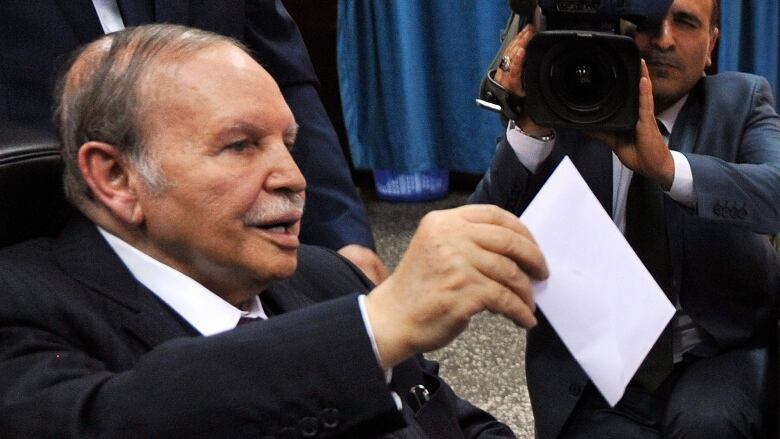Status quo in Algeria as ailing autocrat's party wins most seats in election
National Liberation Front (FNL) holds on to its coalition in election marked by very low turnout

The ruling National Liberation Front (FNL) and its coalition ally have won a majority of seats in Algerian parliamentary elections marked by a low turnout.
The Interior Ministry said on Friday that about 38 per cent of 20 million eligible to vote actually cast ballots. Analysts said bribery scandals during the campaign have deepened long-running distrust of politicians.
Interior Minister Noureddine Bedoui told a press conference that FLN, president Abdelaziz Bouteflika's party, won 164 of the 462 seats in the lower house of parliament.
Former Prime Minister Ahmed Ouyahia's Rassemblement National Democratique FLN's coalition ally finished second with 97 seats.
The Islamist party, Movement for the Society of Peace (MSP), joined forces with the Front for Change, securing 33 seats.

Oil and natural gas drive Algeria's economy, accounting for 30 per cent of its GDP. Low oil prices have hammered the government, and youth unemployment hovers around 25 per cent.
Young Algerians tend to look to Europe for their futures, and the French election on Sunday has been getting far more attention than the legislative vote in the former French colony.
Bouteflika, 80, has rarely been seen in public since a 2013 stroke.
He has been president since 1999 and was previously a key figure in the government in the 1960s and 1970s.
Bouteflika was wheeled in a chair to vote on Thursday, but was unable to physically cast his ballot. A nephew did it for him. He then had trouble with the fingerprinting afterward.












_(720p).jpg)


 OFFICIAL HD MUSIC VIDEO.jpg)
.jpg)



























































































